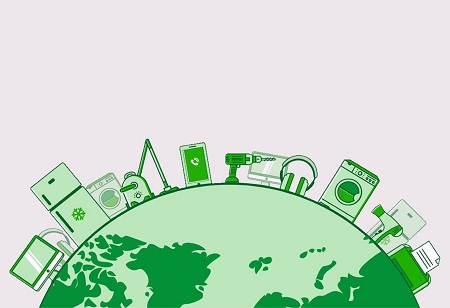Electronic waste (E-waste) generation has become a primary cause of concern in the digital era due to the sheer volume of its production and the implications it has on our ecosystem. The entire amount of waste electrical and electronic equipment (WEEE) is growing at a pace of 2.6 million pieces each year. The global estimate for electronic trash output by 2030 is 74.8 million tonnes, which is alarming and highlights the poor recycling rate of 17.4%.
Electronic garbage has increasingly made its way into our surroundings, from personal devices to home appliances.
According to Greenpeace, India's E-Waste creation would quadruple in the next five years, with a total E-Waste generation of 1,46,180 tonnes each year. Toxics Link's estimates that India creates roughly $1.5 billion worth of E-Waste each year. Moreover, a report done by the International Resources Group (IRG), Delhi, India generates 146,180 tonnes of E-Waste each year, with the Indian IT industry accounting for 30% of that total.
More than 60 per cent of the total E- Waste in India is generated by 65 cities. Of the top 10 cities generating E- Waste, Mumbai ranks first followed by Delhi, Bangalore, Chennai, Kolkata, Ahmedabad, Hyderabad, Pune, Surat and Nagpur. Having said that in this article let's look into the key trends that will shape the future of the e-waste recycling market in India.
AI driven E-waste management
Today, waste management firms can track the quantity of rubbish collected in containers using IoT eWaste monitoring systems. They may arrange e-waste disposal routes based on this, ensuring that eWaste pickup vehicles take an energy-efficient path that saves money and time. This will move electronic trash disposal to an online environment devoted to it, making it more easy and efficient.
The need for intelligent monitoring systems will increase in this decade. Machine Intelligence (AI) technology can help us handle improper waste disposal and capitalize on untapped opportunities. As a consequence, an AI system can aid us in recycling in an efficient and cost-effective manner while avoiding very destructive errors, allowing us to achieve a zero-waste lifestyle.
